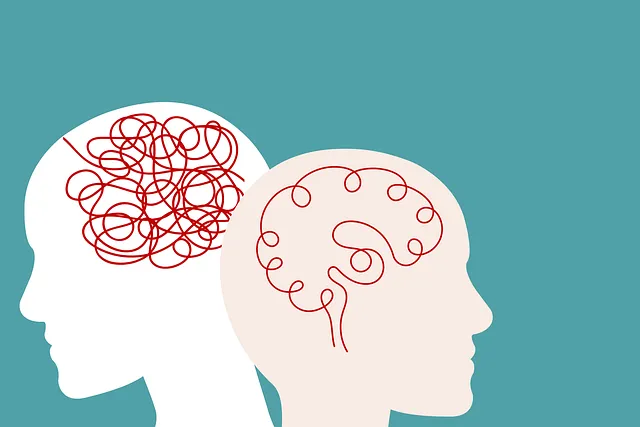Cultural competency is vital in healthcare, especially for mental health services at Kaiser Littleton, where understanding diverse cultural backgrounds ensures personalized care and builds trust. Kaiser Littleton distinguishes itself with innovative training programs that equip staff with skills for empathetic treatment, including workshops on self-care and conflict resolution. These efforts create an inclusive environment, addressing unique cultural needs and improving patient interactions. Effective training involves Social Skills Training for enhanced communication and Mental Wellness Podcast Series Production for modern education. Evaluating training success through pre-post assessments and feedback mechanisms is crucial for continuous improvement in accessing mental health services like those offered by Kaiser Littleton.
Cultural competency training is transforming healthcare, especially within mental health services. This essential program equips providers with skills to understand and connect with diverse patients, ensuring effective care. In this article, we explore the significance of cultural competency in mental health, highlighting Kaiser Littleton’s role as a pioneer in providing culturally sensitive care. We delve into proven strategies for training, measuring success, and how these efforts enable patients to access quality mental health services through Kaiser Littleton, fostering inclusive healthcare environments.
- Understanding Cultural Competency in Healthcare: Why It Matters for Mental Health Services
- The Role of Kaiser Littleton in Providing Culturally Sensitive Care
- Strategies for Effective Training: Equipping Providers to Connect with Diverse Patients
- Measuring Success: Evaluating the Impact and Continuous Improvement of Cultural Competency Programs
Understanding Cultural Competency in Healthcare: Why It Matters for Mental Health Services

Cultural competency is a vital aspect of healthcare, especially within mental health services. It involves understanding and appreciating the diverse cultural backgrounds, beliefs, and values of patients, enabling healthcare providers to deliver more personalized and effective care. When it comes to accessing mental health services through Kaiser Littleton, cultural sensitivity plays a significant role in ensuring patient comfort and trust. Many individuals from different cultural groups may have unique perspectives on mental illness and healing, and competent healthcare providers can facilitate access to appropriate treatment by respecting these differences.
In the context of mental health, this competency helps professionals navigate complex issues such as implicit biases, communication barriers, and cultural taboos surrounding mental wellness. By adopting conflict resolution techniques and trauma-informed care approaches, healthcare staff can create a safe space for patients. Additionally, conducting thorough risk assessments for mental health professionals is essential to identify potential challenges when working with culturally diverse clients, thus improving overall service delivery and patient outcomes.
The Role of Kaiser Littleton in Providing Culturally Sensitive Care

Kaiser Littleton plays a pivotal role in promoting culturally sensitive care within the healthcare landscape. This medical provider is dedicated to ensuring that patients from diverse backgrounds receive services tailored to their unique cultural needs. By integrating various training programs, Kaiser Littleton equips its staff with the skills necessary to deliver empathetic and effective care.
One such initiative focuses on mental health support, offering resources and guidance on how to get mental health services through Kaiser Littleton. Additionally, they provide workshops on Self-Care Routine Development for Better Mental Health, emphasizing self-preservation in a culturally inclusive manner. Moreover, Social Skills Training and Conflict Resolution Techniques are integral parts of their competency training, fostering healthier interactions and resolving differences among patients from varied cultural spectrums.
Strategies for Effective Training: Equipping Providers to Connect with Diverse Patients

Effective cultural competency training for healthcare providers involves strategies that equip them to connect with diverse patients. One key approach is Social Skills Training, which focuses on improving communication, empathy, and interpersonal skills. By learning how to navigate sensitive topics and adapt their approach based on cultural backgrounds, providers can create safer and more welcoming environments for all patients.
Integrating Mental Wellness Podcast Series Production into training programs can also be beneficial. These podcasts offer a modern and engaging way to educate providers about various mental health conditions and cultural perspectives. Topics like depression prevention can be explored through interactive discussions and real-life case studies, enhancing understanding and sensitivity towards diverse patient needs. This approach ensures that healthcare providers are well-equipped to address mental health concerns, such as those seeking how to get mental health services through Kaiser Littleton, from a culturally competent standpoint.
Measuring Success: Evaluating the Impact and Continuous Improvement of Cultural Competency Programs

Evaluating the success of cultural competency training is a crucial step in ensuring its effectiveness and impact on patient care, especially when it comes to accessing mental health services like those offered by Kaiser Littleton. To measure the progress, institutions should implement robust evaluation frameworks that go beyond mere participation rates or satisfaction surveys. A comprehensive approach involves assessing changes in healthcare providers’ attitudes, behaviors, and knowledge related to cultural competency. This can be achieved through pre- and post-training assessments, focusing on areas such as self-esteem improvement, emotional intelligence, and stress management—aspects vital for delivering culturally sensitive care.
Regular feedback mechanisms should be established to facilitate continuous improvement. This includes collecting qualitative data from both healthcare providers and patients, allowing for insights into the practical application of cultural competency skills. By analyzing these evaluations, institutions can identify areas where programs excel and where adjustments are needed, ensuring that services like Kaiser Littleton’s mental health offerings are tailored to meet the diverse needs of their community.
Cultural competency training is a game-changer in healthcare, especially for mental health services. By equipping providers with the skills to connect with diverse patients, as demonstrated by Kaiser Littleton’s leadership, we can enhance care delivery and improve patient outcomes. Implementing effective training strategies and measuring program impact ensures that mental health services through Kaiser Littleton remain accessible, culturally sensitive, and responsive to the needs of all individuals, regardless of their background. This approach is not just a goal but a vital step towards creating an inclusive healthcare system.






